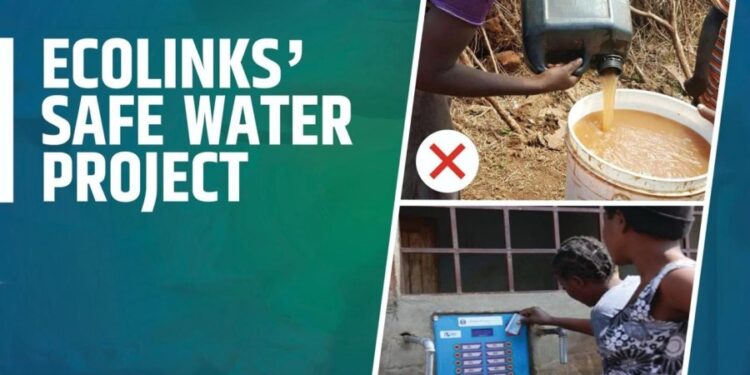When Johnson Penn first arrived in Seoul from Cameroon as an international student, he saw more than skyscrapers and tech hubs. He saw a chance to connect global innovation with pressing climate and development challenges in Africa.
Five years later, Penn’s startup, EcoLinks, is set to launch one of the largest Africa-based water purification projects supported by the Korean government.
EcoLinks was recently selected for the 2025 International Carbon Reduction Program, run by the Korea Trade-Investment Promotion Agency (KOTRA). The recognition will allow the company to conduct a full-scale feasibility study for its Solar-Powered and Smart Tap-Based Water Purification Project in Rwanda. The initiative aims to install 150 decentralized clean water systems across seven underserved districts, providing safe drinking water to over 210,000 people while reducing carbon emissions.

“This is more than just technology transfer,” Penn said. “It’s about creating a comprehensive climate solution that couples carbon mitigation, public health, and community empowerment.”
Korean Tech Meets African Need
The project relies on Korean water purification technology developed by INNOCEP Inc., paired with solar power and digital SmartTaps. The systems replace the traditional use of firewood to boil water, a practice that contributes to deforestation, greenhouse gas emissions, and respiratory illnesses.
EcoLinks estimates the initiative could cut 485,000 tons of carbon dioxide over 10 years and generate 55,000 certified carbon credits annually, tradable under the Paris Agreement’s Article 6.
“Korean innovation can have global impact while helping Korea meet its carbon neutrality commitments,” Penn said, noting that the project also supports bilateral carbon trading between Korea and Rwanda.
Water Access for Communities
For Rwandan communities, the immediate benefit is clean, reliable water. “In some areas, people still fetch water from outside daily,” Penn said. “Even urban centers face shortages. This project offers an alternative.”
EcoLinks will work closely with local officials and communities to design, price, and manage the systems. The “pay-as-you-fetch” model ensures affordability while funding maintenance. Penn said community ownership is key to long-term sustainability.
A Pan-African Vision
While Rwanda is the initial focus, EcoLinks operates projects across Africa, including clean cooking initiatives in Rwanda and renewable energy programs in Cameroon, Ghana, and South Africa. Penn said the approach allows the company to replicate successful models continent-wide.
Challenges Ahead
Challenges remain, including the pending bilateral agreement between Korea and Rwanda for carbon credit transfers. Construction logistics and ongoing system maintenance will also require careful coordination with local communities.
Still, Penn is optimistic. “The solar panels last 25 years, pumps can be replaced as needed, and with proper training, communities can sustain these systems themselves,” he said.
Beyond Carbon, Toward Community
For Penn, the project is as much about social impact as climate metrics. “When women and children no longer walk hours for water, when families stop burning wood, when communities take ownership — that’s the real impact,” he said.
With construction expected within two years, EcoLinks’ Rwanda project may become a flagship model of how Korean technology and African resilience can combine to tackle climate change and improve lives.
“This is a model for how Korea can lead abroad, and how Africa can leapfrog into a cleaner, more sustainable future,” Penn said.











